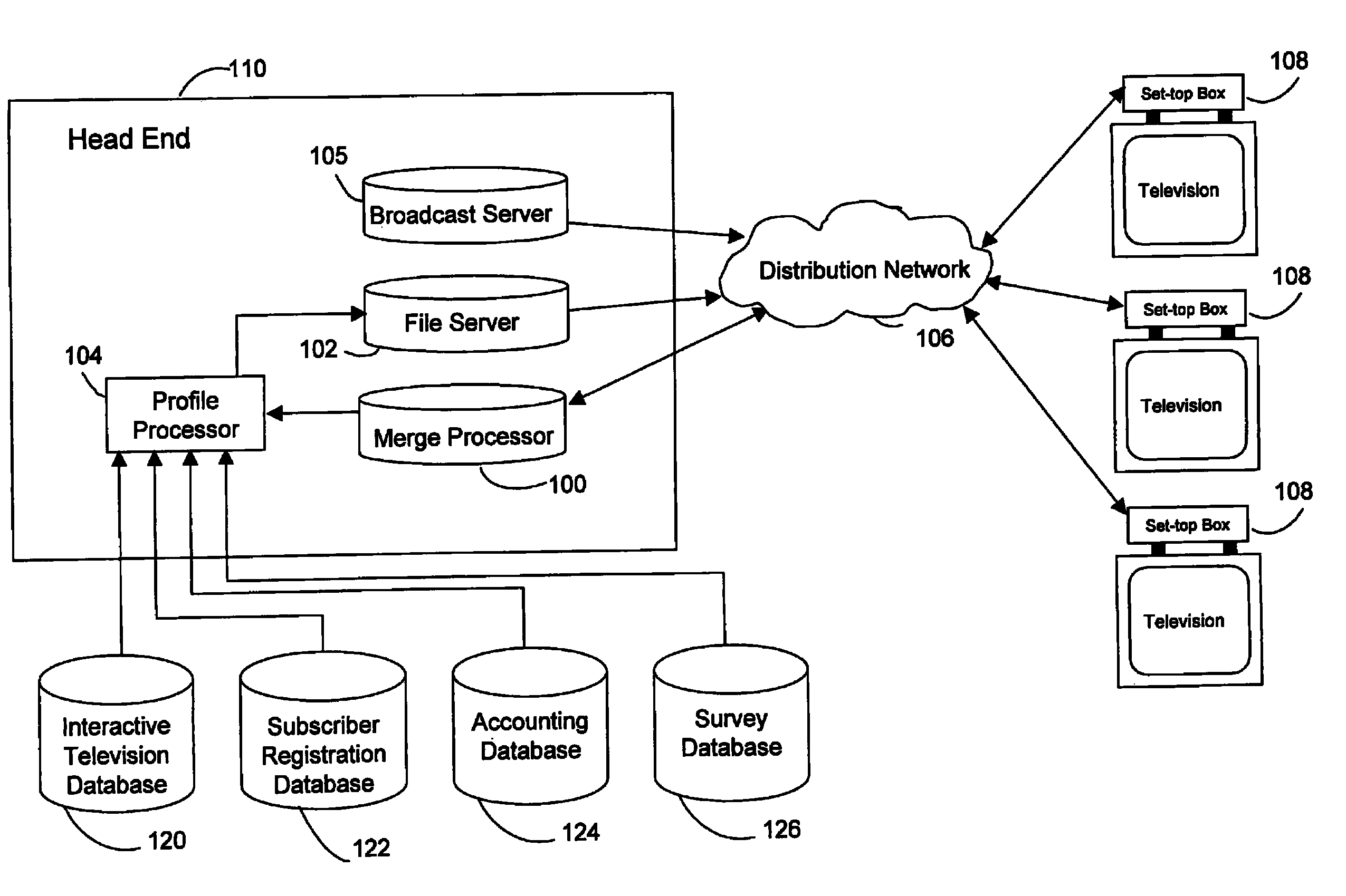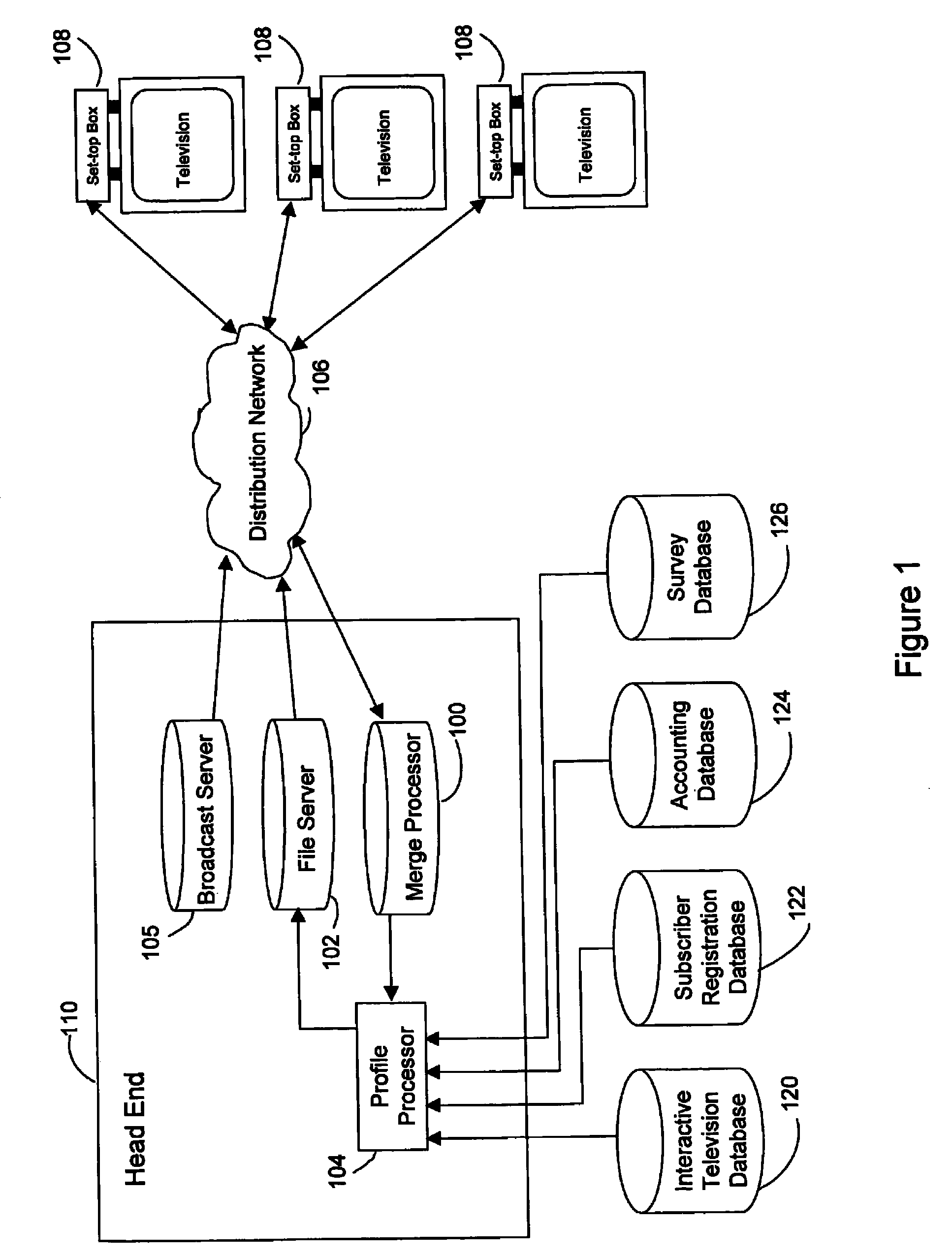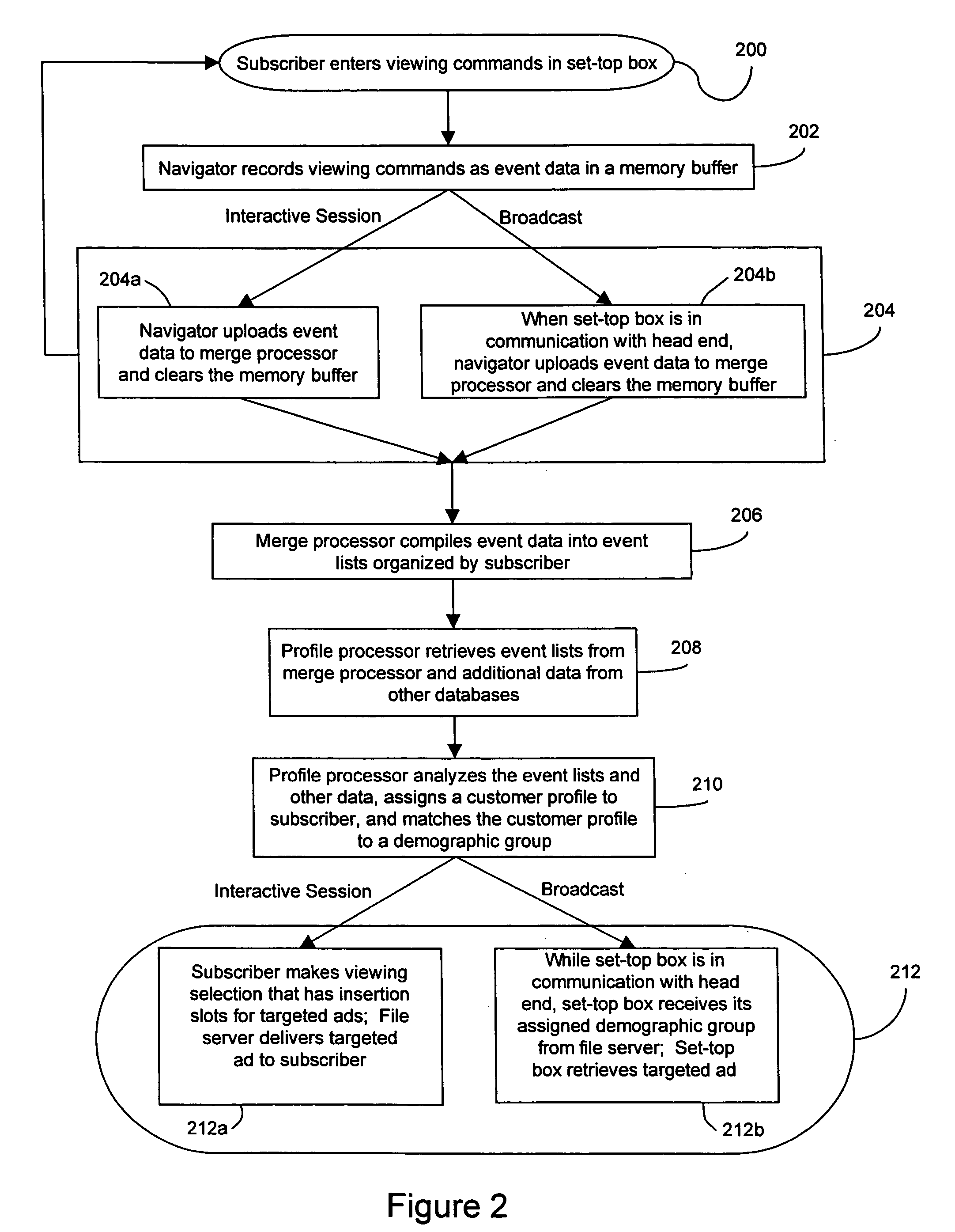Methods and systems for providing targeted content
a technology of targeted content and network media, applied in the field of network media delivery systems, can solve the problems of advertisers wasting money, advertisers necessarily waste at least a portion of their budget on consumers, and over- and under-inclusion inherent in mass media advertising, and achieve the effect of increasing the profit margin of network media providers and efficient spending of advertising dollars
- Summary
- Abstract
- Description
- Claims
- Application Information
AI Technical Summary
Benefits of technology
Problems solved by technology
Method used
Image
Examples
example
[0071]An example of the video stream playlist method of the present invention is a pay-per-view movie service that shows commercials or movie trailers before and after a feature presentation. In this case, merge processor 100 would contain an event list of every viewing selection made by the subscriber up to the ordering of the movie. The event list could include data such as movie previews watched, movies watched, television programming watched, products ordered via interactive television, choices from interactive menus, commercials viewed, and commercials turned off. The historical extent of the data would depend on how long the present invention was active on the subscriber's television. In addition to event data, the media service provider would also have subscriber account information such as billing.
[0072]As the subscriber progresses through the pay-per-view menu screens, events (subscriber selections) are stored in the set-top box and periodically uploaded to the server. The ...
PUM
 Login to View More
Login to View More Abstract
Description
Claims
Application Information
 Login to View More
Login to View More - R&D
- Intellectual Property
- Life Sciences
- Materials
- Tech Scout
- Unparalleled Data Quality
- Higher Quality Content
- 60% Fewer Hallucinations
Browse by: Latest US Patents, China's latest patents, Technical Efficacy Thesaurus, Application Domain, Technology Topic, Popular Technical Reports.
© 2025 PatSnap. All rights reserved.Legal|Privacy policy|Modern Slavery Act Transparency Statement|Sitemap|About US| Contact US: help@patsnap.com



